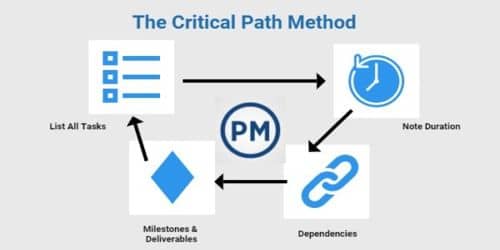A critical path is an activity or event that, if delayed, will delay project completion. It is the chain of stages formative the least time needed for an operation, particularly when analyzed on a computer for a big organization. The Critical Path Method (CPM) can help you keep your projects on track.
The usual assumptions underlying CPM analysis are as follows –
(1) The cost associated with a project can be divided into two components;
- Direct costs: Direct costs are incurred on direct material and direct labor.
- Indirect costs: Indirect costs consists of overhead items like indirect suppliers, rent, insurance, managerial services etc.
(2) Activities of the project can be expedited by crashing which involves employing more resources.
(3) Crashing reduces time but enhances direct costs because of factors like overtime payment, extra payments, and wastage. The relationship between time and direct activity cost can be reasonably approximated by a downward sloping straight line.
(4) Indirect costs associated with the project increases linearly with project duration.
(5) The CPM is ideally suited to projects consisting of numerous activities that interact in a complex manner.














